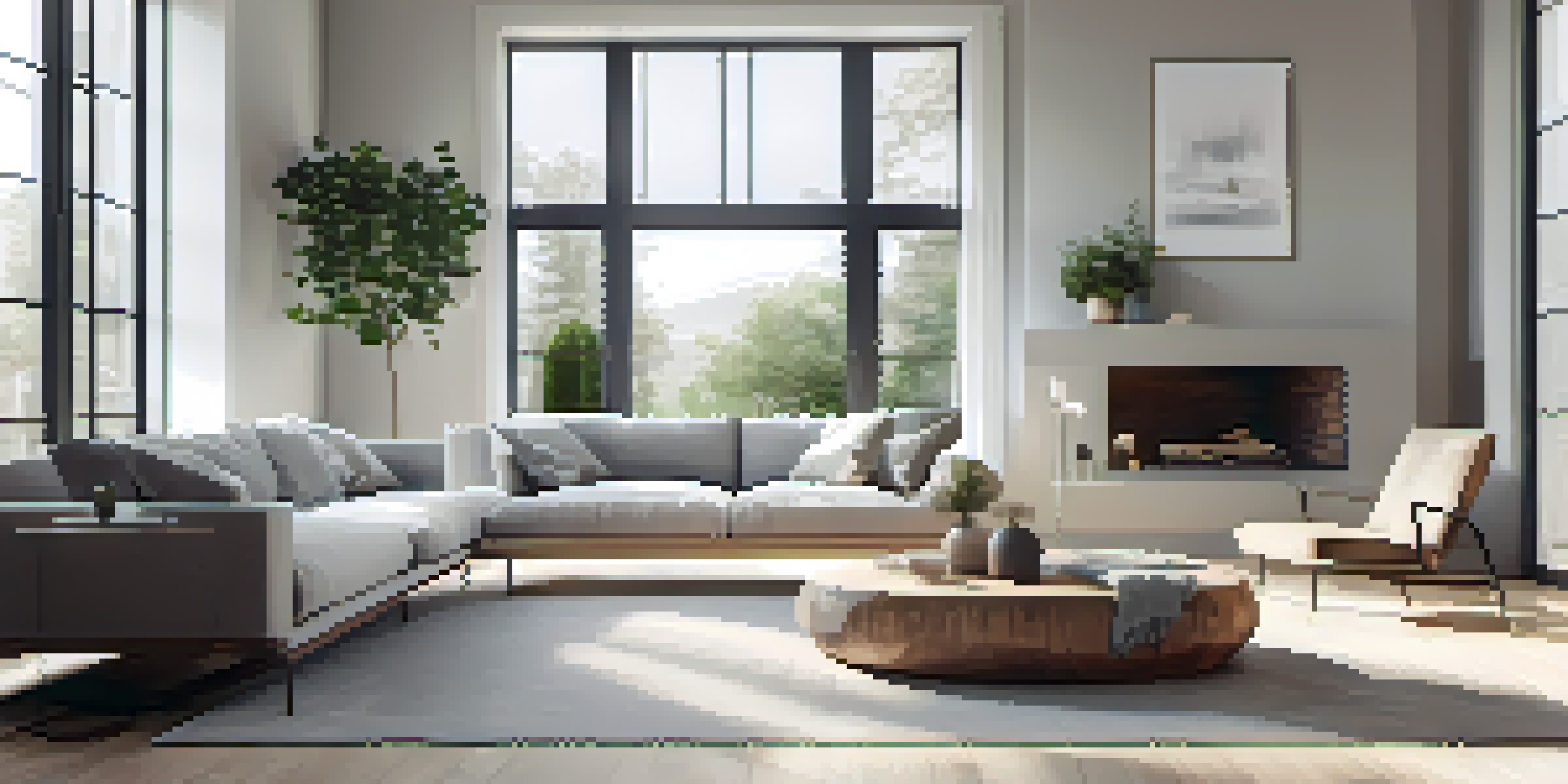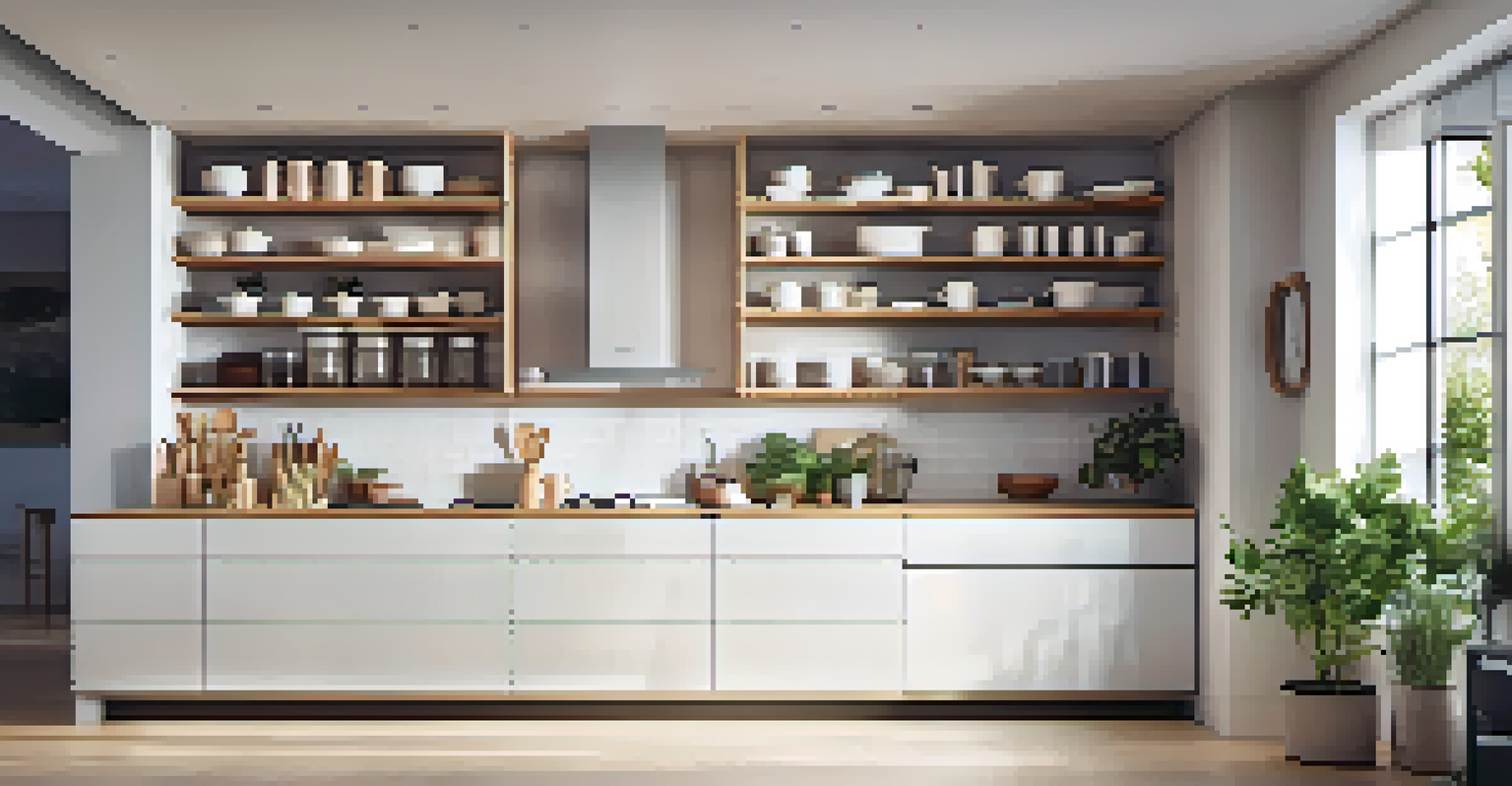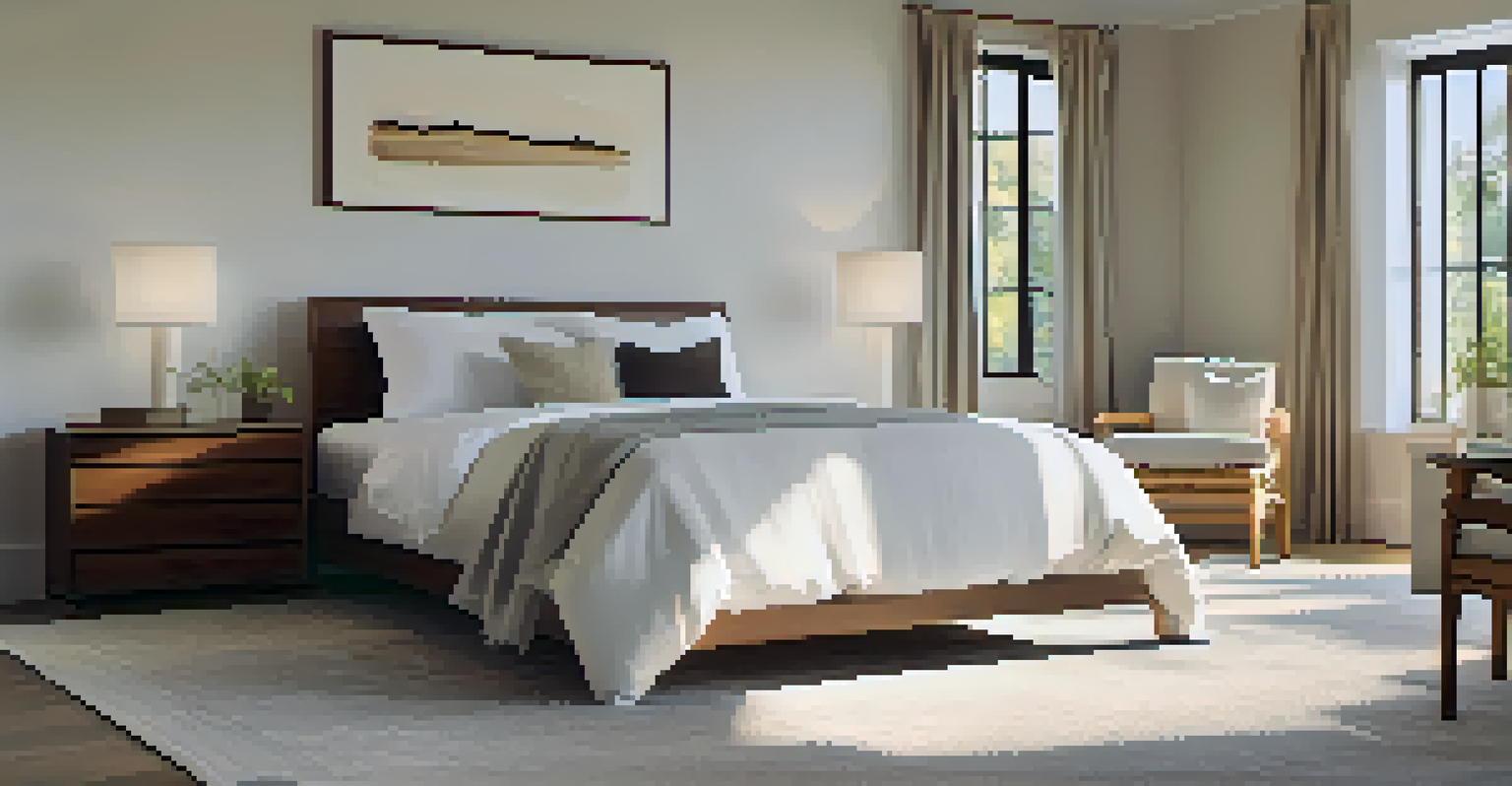Using Minimalism to Declutter and Organize Your Home

Understanding Minimalism: A Lifestyle Choice
Minimalism is more than just a design trend; it's a lifestyle that focuses on simplicity and purpose. By embracing minimalism, you can create a more peaceful and organized home environment. It's about stripping away the unnecessary, allowing only what truly matters to shine.
The ability to simplify means to eliminate the unnecessary so that the necessary may speak.
Think of minimalism as a way to prioritize your life. Instead of being weighed down by possessions, you can focus on experiences and relationships that bring you joy. This shift in perspective can lead to a more fulfilling and intentional way of living.
Ultimately, minimalism encourages you to evaluate your belongings and ask, 'Does this add value to my life?' This mindset is the foundation of decluttering and organizing your home.
The Benefits of Decluttering Your Space
Decluttering is the first step towards achieving a minimalist lifestyle. By removing excess items, you create a more open and inviting space that can positively impact your mental well-being. A tidy environment often leads to a clearer mind, making it easier to focus on what’s important.

Additionally, decluttering can help reduce stress and anxiety. When your home is clutter-free, there’s less visual chaos, which can lead to a sense of calm. Imagine walking into a room that feels spacious and serene, rather than cramped and chaotic.
Embrace Minimalism for Clarity
Minimalism promotes a simpler and more purposeful life by focusing on what truly matters.
Moreover, decluttering can also save you time. With fewer items to manage, cleaning and organizing become quicker and more efficient tasks, giving you more time to enjoy the things you love.
Step-by-Step Guide to Decluttering Your Home
To begin your decluttering journey, start small—perhaps with a single drawer or closet. This manageable approach prevents overwhelm and allows you to see immediate results. As you clear out items, categorize them into keep, donate, or discard piles to simplify the decision-making process.
Simplicity is the ultimate sophistication.
Next, tackle one room at a time. This strategy not only makes the task feel less daunting but also helps you stay focused on the specific space you're working on. Remember, it’s all about progress, not perfection, so celebrate small victories along the way!
Finally, maintain your momentum by setting aside time each week for ongoing decluttering. This habit reinforces your commitment to minimalism, ensuring your home remains organized and your life continues to feel purposeful.
Organizing Essentials: Choosing What to Keep
Once you've decluttered, it’s time to organize what remains. Start by evaluating your essentials—these are the items you use regularly and that bring you joy. By focusing on these key items, you can ensure that your space is functional and meaningful.
Consider adopting the 'one in, one out' rule: for every new item you bring into your home, let go of an existing one. This practice helps prevent clutter from building up again and encourages mindful purchasing habits.
Decluttering Reduces Stress
Removing excess items can create a calming environment that enhances mental well-being.
Remember, organization is about creating systems that work for you. Whether it’s using clear bins, labels, or designated spaces, find methods that make it easy to maintain order in your home.
Creating a Functional Space: Room by Room
When organizing, think about the function of each room. For example, your living room should promote relaxation and socializing, so keep decor simple and comfortable. Arrange furniture to create a welcoming atmosphere while minimizing distractions.
In the kitchen, focus on efficiency. Organize utensils and appliances based on frequency of use. A well-organized kitchen not only makes cooking easier but also encourages healthy eating habits by keeping food accessible.
Finally, consider your bedroom as a sanctuary for rest. Keep surfaces clear and only hold onto items that contribute to a peaceful environment. A clutter-free bedroom can significantly improve your sleep quality and overall well-being.
Mindfulness and Minimalism: A Powerful Pair
Minimalism and mindfulness go hand-in-hand, as both encourage intentional living. By practicing mindfulness, you become more aware of your surroundings and the items you choose to keep. This awareness can guide you in making decisions that align with your values and lifestyle.
Consider incorporating mindfulness practices into your decluttering process. Take moments to reflect on how each item makes you feel and whether it serves a purpose in your life. This thoughtful approach transforms decluttering into a meaningful experience rather than a chore.
Maintain Order with Mindfulness
Incorporating mindfulness into your routines helps sustain a clutter-free and intentional living space.
Incorporating mindfulness into your daily routine can also help you resist the urge to accumulate more. By appreciating what you have, you can cultivate a sense of gratitude that enhances your minimalist lifestyle.
Maintaining Your Minimalist Home: Tips for Success
Once you've embraced minimalism, it’s important to establish routines that help maintain your organized home. Regularly assess your belongings and declutter as needed to keep your space feeling fresh and functional. Creating a habit of reviewing your items can prevent clutter from creeping back in.
Consider setting limits on new purchases. By consciously evaluating your needs and wants, you can avoid impulsive buys that lead to clutter. This deliberate approach not only keeps your home organized but also saves you money in the long run.

Finally, remember that minimalism is a journey, not a destination. Embrace the process and be kind to yourself as you navigate your way towards a more organized and fulfilling life.